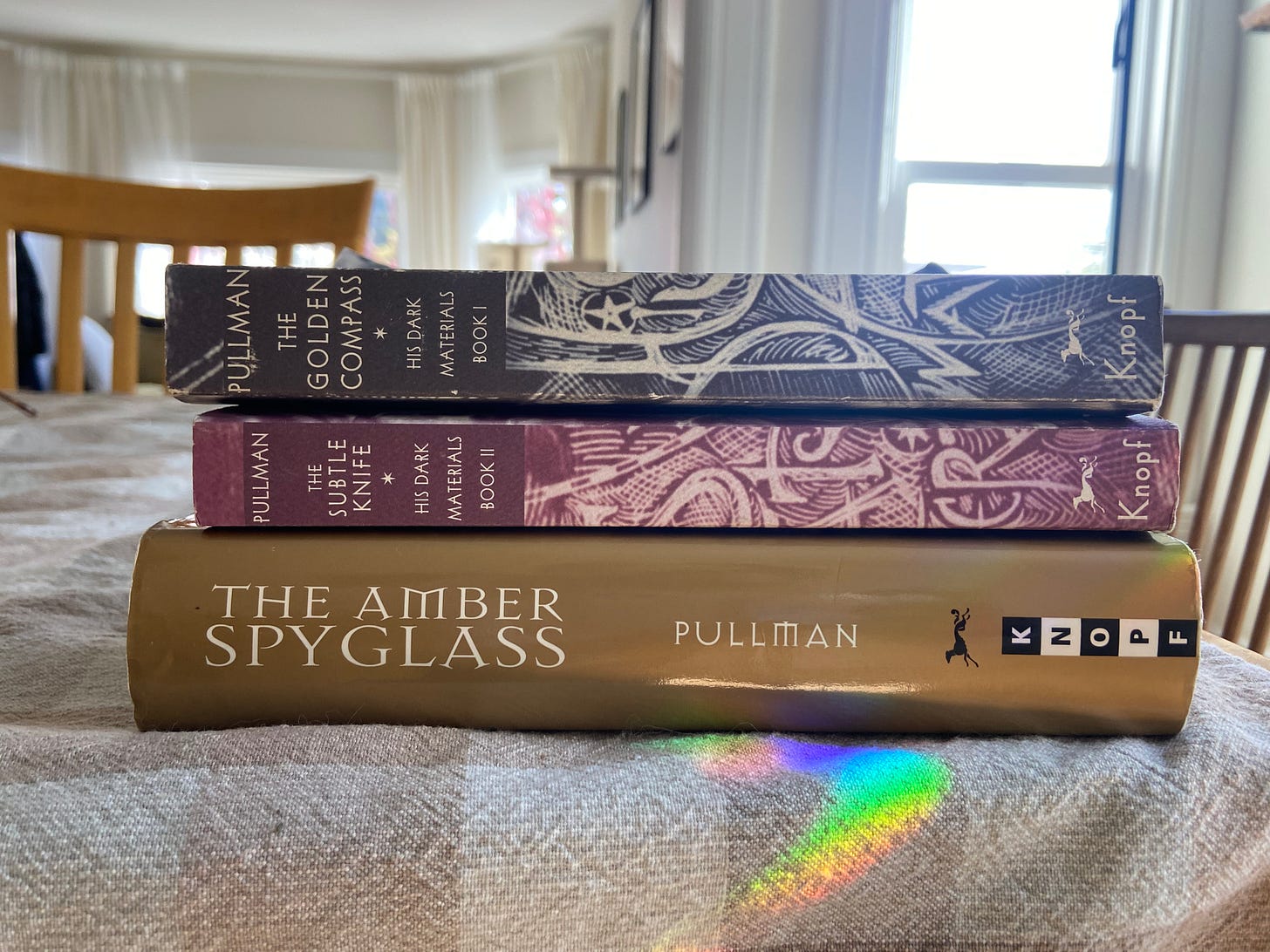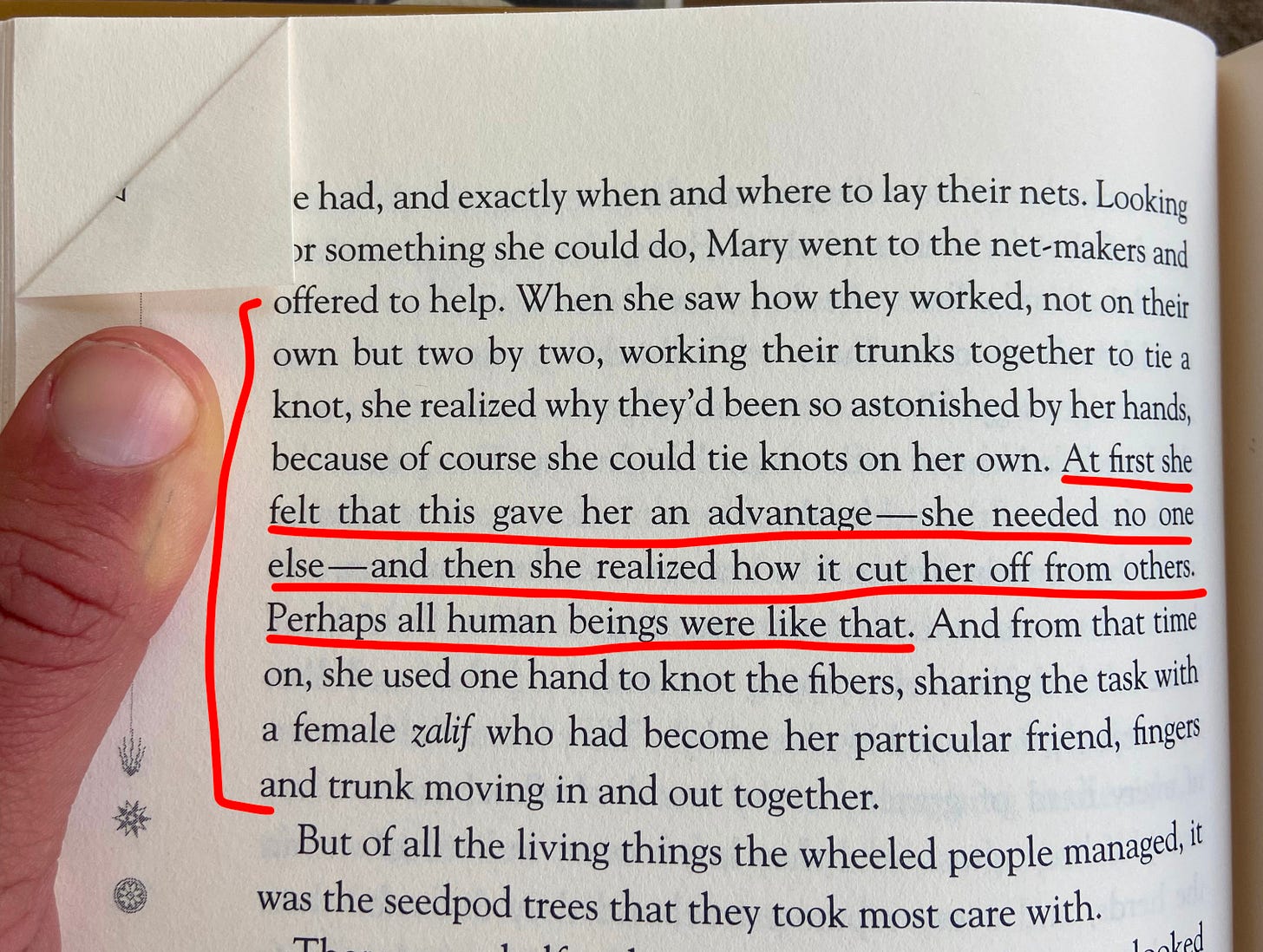I’ve been rereading Philip Pullman’s His Dark Materials trilogy—the series that starts with The Golden Compass—and it’s reawakened a deep existential fear. The Golden Compass and its sequels are a part of a certain class of books that as a child induced an almost dissociative sense of melancholy in me, like my life was but an image I was watching on a screen, and that there were darker forces at play in the world around me that I could barely perceive.
Which was true, kind of! The His Dark Materials books are dark—there’s a lot of pretty graphic violence, and a lot of profound loss, which scared me more than the violence. (All the stuff about killing god was lost on me, I was raised by a staunch ex-Catholic.)
Another book that never failed to evoke this same disorienting feeling was The City of Ember. If you weren’t subjected to it when you were 11, it’s in the vein of aughts/10’s young adult dystopian fantasy—it’s about these people who live in a post-apocalyptic underground city that’s been running on dwindling stores and a failing generator, and these kids trying to escape it. I remember the way the darkness surrounding the city was described being viscerally terrifying—though I’m not sure it would hold up as an adult. The idea of the dwindling stores also scared me.
Something that The City of Ember and the His Dark Materials trilogy have in common is the concept of multiple worlds overlapping and existing in the same space. In His Dark Materials, Lyra travels between these worlds through windows, cut in the fabric of the universe by the Subtle Knife. In The City of Ember (spoiler alert), the people use boats left by the city’s founders to escape the underground world where they’ve lived for 200+ years, and emerge into a post-apocalyptic above-ground landscape, the overgrown ruins of a world decimated generations ago by nuclear war (iirc, I didn’t reread it for this.)
Something else they have in common is the idea of profound, permanent change: something will happen, and things will be different, and you will be unable to return to the way they were before, no matter how hard you try. Beyond any sense of darkness or alternate worlds, I think that’s what really scared me, as a child. It still scares me now—the last time I really felt that fear was when I was reading Octavia Butler’s Parable of the Sower for the first time in college, thousands of miles away from home while California burned. (Climate anxiety is also definitely a common theme here.)
Reading the His Dark Materials books for the first time myself (they were read to me out loud as a child by my mother, when I was probably a bit too young for them to be honest) I feel little echoes of these fears in me. I still think it’s good for kids to read things that are too “scary” or “adult”; I credit most of my love of reading and writing to having been given free reign of my mother’s bookshelves, where I found plenty of things I should not have been reading. Sure, sometimes I got scared, or read a weird sex scene, but mostly it just made me more curious. Getting a little freaked out (in a safe, supportive environment) teaches you how to cope.
Anyways, these days I mostly read literary fiction, where I don’t really run into these kinds of deep fears at all. (I read a lot of books written by trans people living in New York about trans people living in New York, which evoke an entirely different set of fears.) But returning to this old fear and melancholy is making me realize that it’s good for me, and just as important to be feeling now as it was when I was younger. Much of the time, the general state of the world makes me feel helpless and just plain scared. But the fear and the melancholy come with a sense of resilience and survival. You have to leave the old world to enter the new one.
Since I started writing this post, I’ve actually finished all the books, so if you have recommendations for what to read next, I’d love to hear them. (Especially if it’s fiction.)
xoxo!




